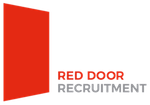Candidate newsletter | Phone interview top tips | 28/04/2020
Dear all,
Following on from last week, the theme is interview preparation and with companies having to carry out more telephone and video based interviews, here is some guidance on how to make the most out of that call!
Congratulations! You’ve landed a coveted interview with a potential employer. And it’s not even in person so there’s no need to sport that freshly ironed suit. On one hand, you won’t need to look your best or check out directions to the office but on the other hand, that means you’ll need to sparkle in other areas since face-to-face contact and body language cues are non-existent.
Prepare, prepare, prepare
The beauty of having a phone interview is being able to refer frequently to your notes without feeling like you’re not supposed to peruse them. Prepare for your phone interview by printing a copy of your resume as well as the job description.
Highlight overlaps on the hard copies regarding your experiences and skills that directly relate to the job description so you can easily refer to them on the phone. And create a cheat sheet, if you will. Jot down talking points as well for experiences and/or skills you specifically want to emphasise.
During the phone interview have your pointers easily accessible in hand along with a notebook and pen to take notes.
Block out extraneous noise
There’s nothing worse than giving a poor first impression on the phone due to background noise. Simply stated, to the interviewer, it sounds unprofessional.
Whether you work from home and have a barking dog in the background or take the call during your lunch hour on a loud city street, plan ahead to create a quiet zone.
In order to achieve absolute silence, do a little planning such as asking a neighbour to dog sit for one hour. Not only will it create a professional environment for the listener, you’ll be able to concentrate better as well.
And if unforeseen circumstances arise — such as taking the call from your home only to realise your neighbour in the apartment next door is having construction done — tell the interviewer this was unexpected. Specifically acknowledge the extraneous noise. This way you’re making them aware that you’re conscious of the distraction and that it’s out of your control. (And if you’re speaking on a landline, remember to turn off your mobile phone.)
Stand up, smile and be positive
To boost energy into your voice, avoid sitting down. Stand up instead. This will put less pressure on your diaphragm. In turn, you’ll be able to speak more easily. And also, remember this isn’t a face to face interview where you can flash your pearly whites - You’ll need to express friendliness, energy and enthusiasm on the phone; the best way to do this is to smile and be positive!
Yes, you may feel a little silly but considering you’re alone on the call, who’s going to see you? Go ahead and practice. The next time you speak with a colleague on the phone or even if it’s a personal call to a friend or relative, start smiling.
Some sales representatives suggest putting a mirror by your phone or having the words “smile and dial” printed somewhere nearby. Whatever cues you use to remember to smile, trust me — it will generate friendliness on the phone.
Allow for silence
Many aspects of the phone interview don’t necessarily relate to how well you can do the job. The interviewer will generally examine how well you communicate. Try not to talk over the interviewer (interruptions are a no-no, not unlike in-person interviews) and if you get nervous, take a deep breath and allow for silence.
Sure, this may feel awkward at first. Silence on the phone for two seconds can feel more like two minutes. Two very long minutes. As you’re thinking of an answer, you can even say, “Hmmm, that’s a great question so I’ll need a minute or two to concoct my answer.”
It may feel awkward for you but not to the employer. Remember, the interviewer is not only accustomed to silence, he or she expects it. So don’t feel badly about taking an extra moment or two to gather your thoughts into an articulate statement.
Clear communicator!
We can’t stress enough the importance of communicating clearly!
Be aware of how you speak. This role requires strong communication skills so it’s important to avoid mumbling or speaking quietly – if the interviewer has to keep asking you to repeat yourself, recognise how you’re speaking, don’t assume they’re just deaf!
Avoid using filler words like "um" or "like" in sentences or to fill gaps - this habit will make you sound unpolished and unprofessional.
Speak professionally with complete sentences and no slang terms or colloquialisms. This doesn't mean using big words outside your normal vocabulary. Just speak in a professional, polished way.


